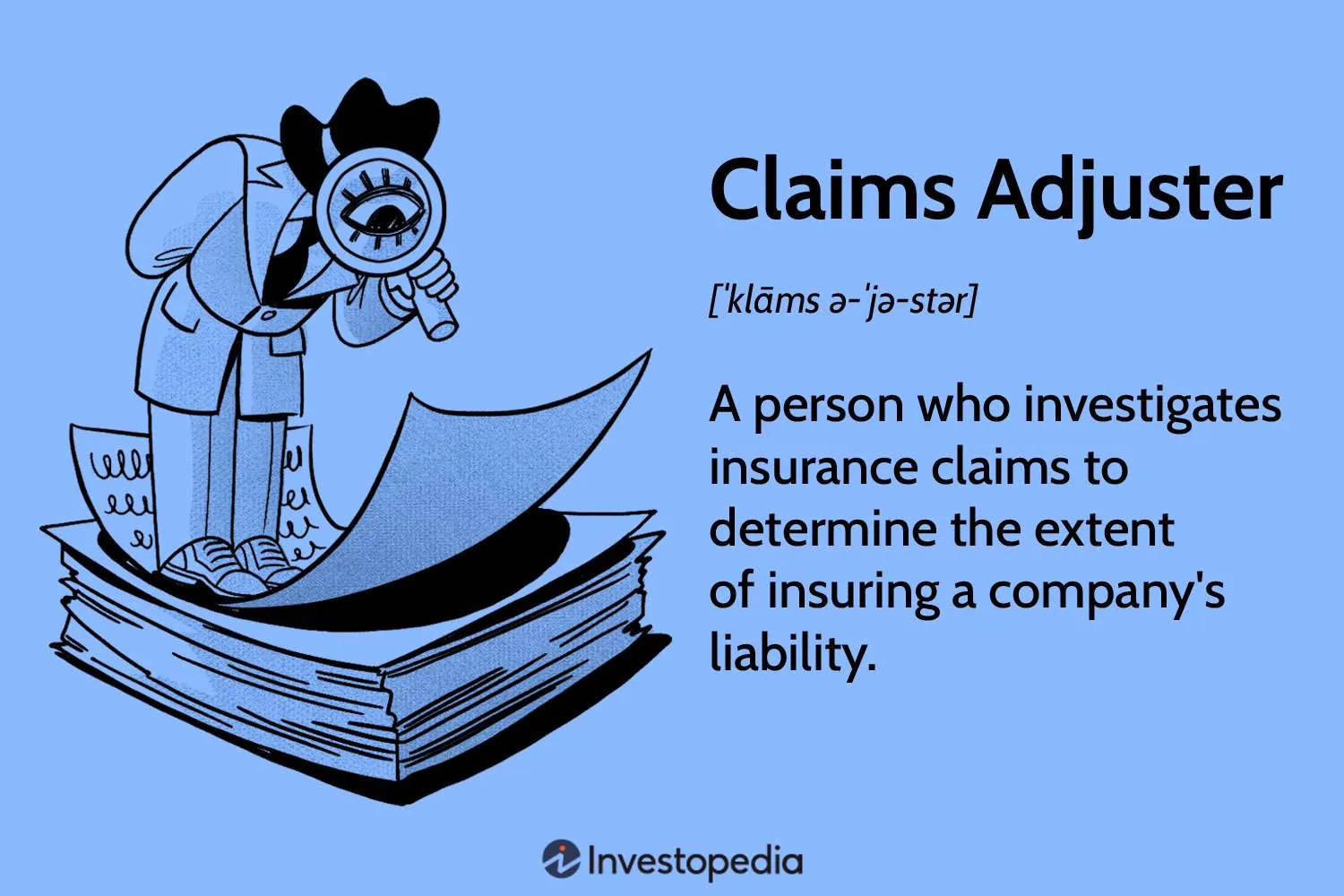Insurance adjusters are essential in analyzing and managing claims when people or organizations suffer losses covered by their insurance policy. An insurance adjuster is a qualified professional who serves as the insurance company’s agent and is responsible for assessing the claim’s legitimacy, quantifying the loss, and facilitating the settlement process. We will go into the world of insurance adjusters in this post, looking at their duties, education, and the significance of their position in ensuring efficient and fair claims handling.
An Insurance Adjuster’s Definition
A person who examines, assesses, and bargains insurance claims on behalf of the insurance company is known as an insurance adjuster, sometimes known as a claims adjuster. They are in charge of figuring out the policy’s coverage, establishing the extent of the loss or damage, and figuring out the right amount of compensation to give the policyholder.
Depending on their skill and the unique requirements of the insurance company, insurance adjusters might specialize in certain claims, such as property, casualty, auto, or liability.

Responsibilities of an Insurance Adjuster
An insurance adjuster’s main duties center on managing the claims procedure successfully and expeditiously. These obligations consist of:
Assessing the Claim: The adjuster examines the details of the claim, including policy terms and conditions, supporting documents, and evidence of the loss or damage. They gather relevant information from the policyholder, witnesses, experts, and other involved parties to establish the facts surrounding the claim.
Investigating the Loss: Insurance adjusters conduct thorough investigations to determine the cause, extent, and value of the loss or damage. They may visit the site, interview witnesses, consult experts, review documents, and gather any other necessary evidence to evaluate the claim accurately.
Policy Analysis: Adjusters analyze the insurance policy to understand the coverage provided and the applicable limits, deductibles, exclusions, and conditions. They interpret policy language and determine the extent to which the loss or damage falls within the policy’s coverage.
Evaluating and Negotiating Claims: Based on the gathered information and policy analysis, adjusters assess the value of the claim and negotiate with the policyholder or their representative for a fair and equitable settlement. They consider factors such as the extent of the loss, market value, replacement costs, and any applicable depreciation.
Documentation and Reporting: Adjusters prepare detailed reports documenting their findings, evaluations, and recommendations. These reports serve as the basis for the insurance company’s decision on claim settlement. Adjusters also maintain accurate records and communicate with all relevant parties throughout the claims process.
Qualifications and Expertise
Insurance sector expertise, education, and training are frequently combined by insurance adjusters. While particular standards may differ by jurisdiction and insurance provider, the following are typical requirements:
Licensing: Adjusters must hold the necessary licenses or certifications mandated by the regulatory authorities in their jurisdiction. These licenses ensure that adjusters meet the minimum competency standards and adhere to ethical guidelines.
Knowledge of Insurance Policies: Adjusters need a comprehensive understanding of insurance policies, including coverage types, exclusions, and limitations. They should stay updated on changes in insurance regulations, industry practices, and emerging trends.
Investigative and Analytical Skills: Adjusters must have strong investigative and analytical skills to gather and evaluate information effectively. They should be able to assess complex situations, interpret policy language, and make fair and objective judgments.
Communication and Negotiation Skills: Excellent communication and negotiation skills are essential for an adjuster’s role. They must be able to clearly explain the claims process, policies, and settlement options to policyholders. Effective negotiation skills help in achieving mutually beneficial settlements.
Importance of Insurance Adjusters
Insurance adjusters play a vital role in the insurance ecosystem, serving as a link between policyholders and insurance companies. Their role is essential for several reasons:
Prompt Claims Handling: Adjusters strive to handle claims efficiently, ensuring prompt settlement and providing financial relief to policyholders when they need it most. Their expertise expedites the process and reduces the burden on policyholders during difficult times.
Fair Evaluation: Adjusters evaluate claims objectively, considering policy provisions and relevant information. Their impartiality ensures that policyholders receive fair compensation based on the terms and conditions of their insurance policies.
Risk Mitigation: By thoroughly investigating claims, adjusters help identify potential fraudulent activities, mitigating the risks associated with false or exaggerated claims. This protects the interests of both policyholders and insurance companies, promoting trust in the insurance industry.
Customer Satisfaction: A skilled adjuster can effectively communicate with policyholders, addressing their concerns, answering questions, and guiding them through the claims process. This level of customer service enhances satisfaction and builds long-term relationships.
Insurance adjusters are essential to the handling of claims since they are responsible for assessing and managing insurance claims. Their experience, familiarity with insurance contracts, and dedication to just settlements guarantee that policyholders obtain the benefits to which they are legally entitled. Insurance adjusters safeguard the interests of both policyholders and insurance firms by effectively managing claims. This increases the industry’s general credibility and dependability.










